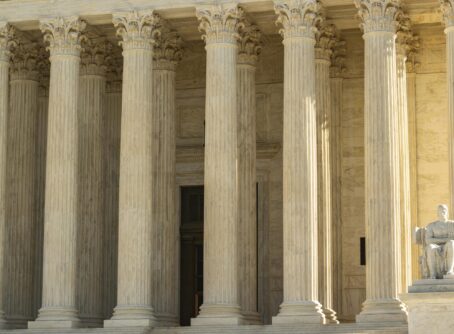In 1995, the only instance of the Johnson Amendment—a provision in the U.S. tax code that prohibits 501(c)(3) tax-exempt organizations, including churches, from endorsing or opposing political candidates—being enforced against a church occurred in Binghamton, New York, where Branch Ministries urged Christians not to vote for Bill Clinton through newspaper advertisements. The International Revenue Service (IRS), citing the Johnson Amendment, responded by revoking the church’s tax exemption. In light of this, many churches have opted to refrain from engaging their congregations in political discussions, especially those pertaining to political candidates. The recent decision by the IRS to file a joint motion indicating a reinterpretation of the Johnson Amendment raises an array of questions for churches and faith-based organizations across the country, as they navigate what they now can or cannot say.
The IRS joined National Religious Broadcasters and the other plaintiffs in signing off a motion statement, which concludes, “Communications from a house of worship to its congregation in connection with religious services through its usual channels of communication on matters of faith do not run afoul of the Johnson Amendment as properly interpreted.” This affirmation encounters two points of contention.
First, the settlement employs terms that the IRS has yet to fully define, making it difficult to determine what weight the joint motion truly carries. “While not abundantly clear, the phrase ‘through its usual channels of communication’ appears to be intended to accommodate the dissemination or broadcast of a church’s religious message to ‘its congregation’ via media (such as television, radio, and internet broadcasts). That would be a logical conclusion . . .” writes Mike Batts, who chairs the Commission on Accountability and Policy for Religious Organizations.
Secondly, the motion is inconsistent with IRS published guidance. IRS Publication 1828, the Tax Guide for Churches & Religious Organizations, states that, in order “for their organizations to remain tax exempt under IRC Section 501(c)(3), religious leaders can’t make partisan comments in official organization publications or at official church functions.” Batts puts it plainly, “Clearly, the IRS’s new position, as described in the joint motion, directly contradicts the guidance.”
As it stands, the IRS statement in the recently filed motion seems only to apply to the involved litigants. But will it have broader implications, signaling a future shift in the IRS’ general guidance and interpretation of the Johnson Amendment? Batts believes that “[i]f the filing truly represents an embodiment of new IRS policy in this controversial area of tax law, the IRS will need to revoke and/or amend quite a significant amount of its published guidance on the topic.”
The extent to which the joint motion sets a precedent is uncertain, and we will not know definitively unless and until the IRS formalizes its decision. The Center for Public Justice will be hosting a webinar about the Johnson Amendment on August 21, featuring a panel of legal experts (including Mike Batts) and faith leaders who will discuss the current state and future of the Johnson Amendment, as well as how pastors and clergy of various theological traditions answer whether and how they endorse political candidates in light of, or despite, the controversial amendment. In the meantime, faith leaders are encouraged to stay informed and be attentive to new statements and official guidance from the IRS.
Girien R. Salazar, Ph.D., is the Director of Faith-Based Policy and Research at the Center for Public Justice.




